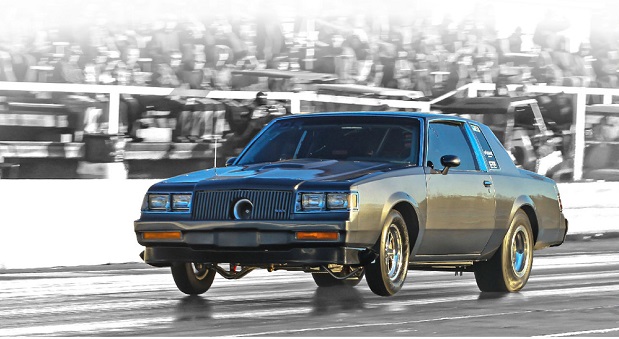
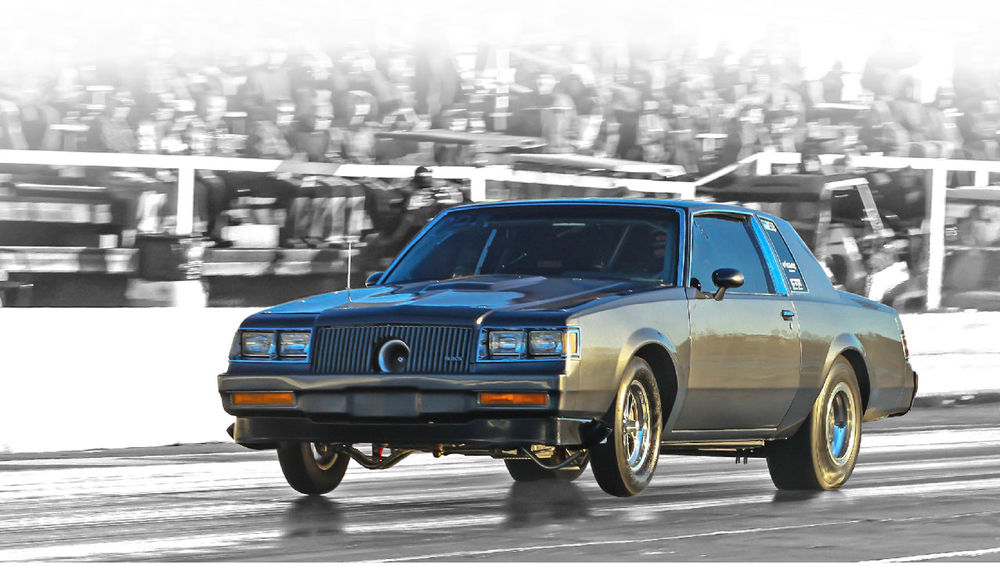
Brakes for drag cars are nothing new. Specialized disc brakes for cars that pound the 1320 have been around for decades. But all of those systems had one thing in common: They were designed from the beginning for purpose built cars. That meant that the rotors were usually thin, non-vented designs. And calipers were usually built as small as practical (many were tiny two-piston affairs). The idea here was to keep the weight down, and to rely upon the back brakes and perhaps the drag chute to do the majority of the stopping. Those systems work great for stripped down race machines. But today, there’s a new breed of car on the scene: The street legal racecar.
These are often much heavier (nose heavier too) cars that obviously carry license plates. Where the common drag car might weigh 2400-2800 pounds, today’s trend has cars tipping the Toledos at 3,500 plus pounds (some are even in the two ton range!). And that’s not the end of it: Plenty of these heavy street cars run elapsed times and mph figures that would embarrass a decade old legal Pro Stocker. Brakes designed for lightweight cars certainly won’t allow you to make the first turn-off road, and in most cases, the thin rotors crack or warp because of the excess heat. Calipers are stressed to the max and in many cases, the calipers actually flex at the mounts due to the strain. Bottom line here is, these new angle cars usually have a wide range of street equipment on board, they’re portly and they really do mandate a different type of brake arrangement.
What’s needed for these fat flyers (and that’s not an insult – we really dig the new wave race cars) is some form of brake that will still fit inside a skinny drag race wheel, but with a larger vented rotor – something that will reliably dissipate the heat with sufficient capability the car can do hot laps at the drag strip or function as a dual duty street-strip car.
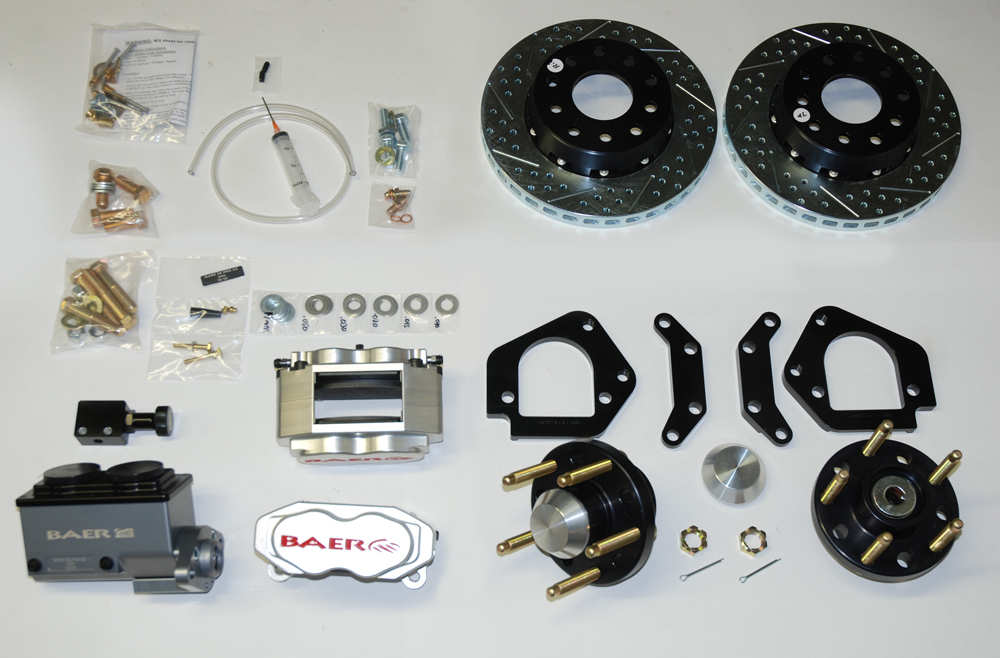
But there’s something else to consider when you’re contemplating such a system: Believe it or not, there are plenty of brake packages out (race and otherwise) that are actually manufactured in China. Worse, some of those are actually repackaged so you might not even know the source. We can assure you that the quality of some of those pieces is rather suspect. Its buyer beware. But that’s not the purpose of this article. Instead, let’s look at a very high quality, affordable, made-in-the-USA brake system designed specifically for high power, fast street-strip cars. And that’s Baer Brakes’ Deep Stage Brake lineup:
When the folks from Baer took note of what was actually happening on the racetrack, they sat down and engineered a new brake system that would fit the application. For the front (where we’ll concentrate on now) Baer began with their tried and true SS4+ package and reworked it with an eye toward drag racing. Keep in mind they had to make everything fit inside drag race style skinny 15-inch front wheels too.
The rotors are a very important part of the equation. Here, Baer’s system features an 11-inch diameter, two-piece rotor. The actual rotors are 1-inch thick and they’re cast from high silicone cast iron. Additionally, the rotors are of the directional vane configuration. According to Rick Elam of Baer Brakes; this setup is superior to a straight vane or solid rotor in that it cools the brake while rotating. Something most don’t consider is the fact a directional vane is actually longer (when compared to a straight vane). This effectively adds to the stability of the rotor. Depending upon the options you tick off on the order sheet, the Baer Deep Stage Brake rotors can be drilled, slotted, drilled and zinc plated. You can specify the whole works (slotted drilled and plated) or slot only with no zinc plate or plain (no slots, no holes, no zinc).
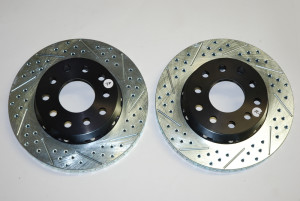
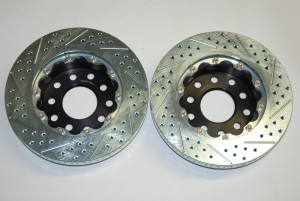
Because the rotors are directionally vaned, the rotors must rotate in the correction direction in order to obtain proper airflow. When you open the boxes that contain your brake kit, you’ll find the rotors are clearly marked “left” and “right”. If you miss that, just remember that the internal vanes curve toward the back (not the front of the car). That provides you with the proper orientation. You’ll also note that the rotors have what is called a “reverse slot” or a “reverse slot and drill” pattern. While it looks “backwards” to the uninitiated, it’s actually correct. Baer Brake’s Rick Elam tells us this is current racecar practice, and it lowers the potential for “carbon smearing” or transfer from the pad material to the trailing side of the slots on the rotor. This is rather important since this carbon smearing has an effect upon the rotational balance of the rotor. That imbalance can cause shake you can actually feel while braking.
Since the Baer drag race package is based upon a two-piece rotor (rotor “ring” and a hat), then it’s easy to replace the rotors when necessary. Baer has them in stock and they sell for under $200 each.
In the next segment, we’ll take a close look at the hats and the hubs. Just like the rotors, Baer Brakes packs a considerable amount of technology into their Deep Stage drag race brake package. Watch for it.
Baer Brakes
2222 West Peoria Ave Phoenix, AZ 85029
PH: 602-233-1411
Website: www.baer.com
E-Mail: [email protected]


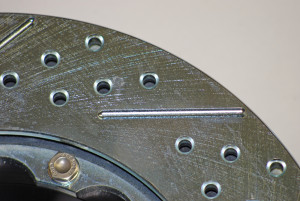


Leave a Reply